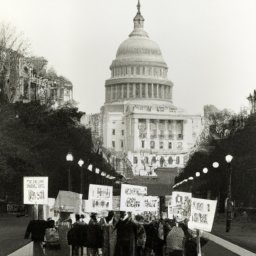The Bipartisan Campaign Reform Act of 2002 (BCRA) was a major piece of legislation that sought to reform the way campaigns were financed in the United States. The law was passed in response to growing concerns about the influence of money in politics and its impact on the democratic process. The law was a bipartisan effort, co-sponsored by Senators John McCain (R-AZ) and Russell Feingold (D-WI), and was signed into law by President George W. Bush on March 27, 2002.
The BCRA had a number of key provisions, including limits on the amount of money that individuals and political action committees (PACs) could contribute to candidates and political parties. The law also banned "soft money" contributions, which were unlimited donations to political parties that were not subject to the same contribution limits as donations to individual candidates. In addition, the BCRA required disclosure of campaign contributions and expenditures, and created new rules for issue advocacy ads that mentioned candidates in the lead-up to an election.
The BCRA was seen as a major victory for campaign finance reform advocates, who had been pushing for changes to the system for years. However, the law was not without its critics. Some argued that the BCRA violated the First Amendment rights of individuals and groups to engage in political speech, while others argued that the law did not go far enough in addressing the influence of money in politics.
The BCRA was challenged in court almost immediately after it was passed, and the Supreme Court issued a number of rulings that impacted the law over the years. One of the most significant of these was the decision in Citizens United v. Federal Election Commission, which struck down limits on independent expenditures by corporations and unions in elections. This decision opened the door to a flood of outside spending in elections, and many argue that it has had a profound impact on the political landscape in the United States.
Despite these challenges, the BCRA remained in effect for many years, and had a significant impact on elections in the United States. Candidates and political parties had to adjust to the new rules around fundraising and spending, and many found creative ways to work within the confines of the law. However, the BCRA was not a panacea for the problems of money in politics, and many argue that further reforms are needed to address the ongoing influence of money on the democratic process.
In recent years, there have been renewed calls for campaign finance reform in the United States. Some have called for a constitutional amendment to overturn Citizens United, while others have advocated for more incremental reforms to the system. The issue remains a contentious one, with many different views on the best way to address the problem of money in politics.
Overall, the Bipartisan Campaign Reform Act of 2002 was a significant piece of legislation that had a major impact on American politics. While the law faced many challenges and criticisms over the years, it represented an important step towards addressing the influence of money in politics and protecting the integrity of the democratic process.
